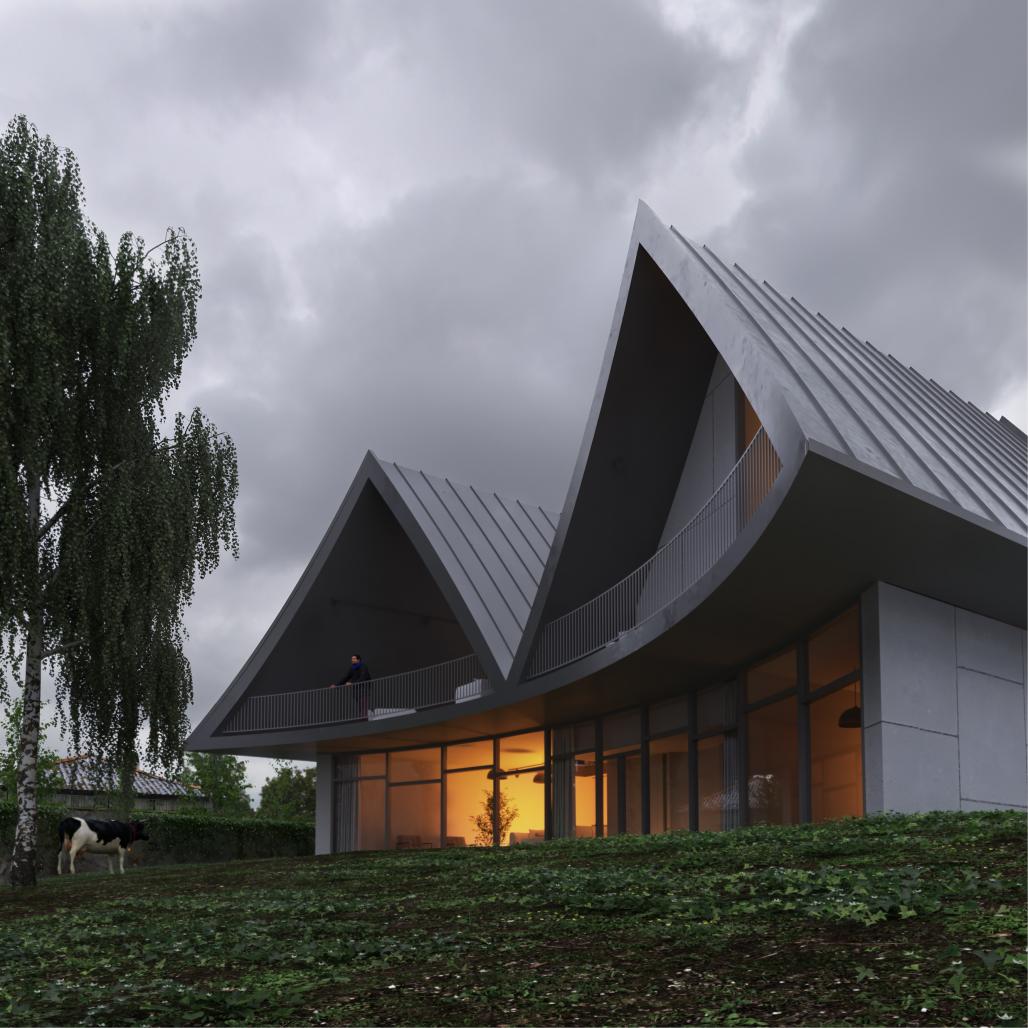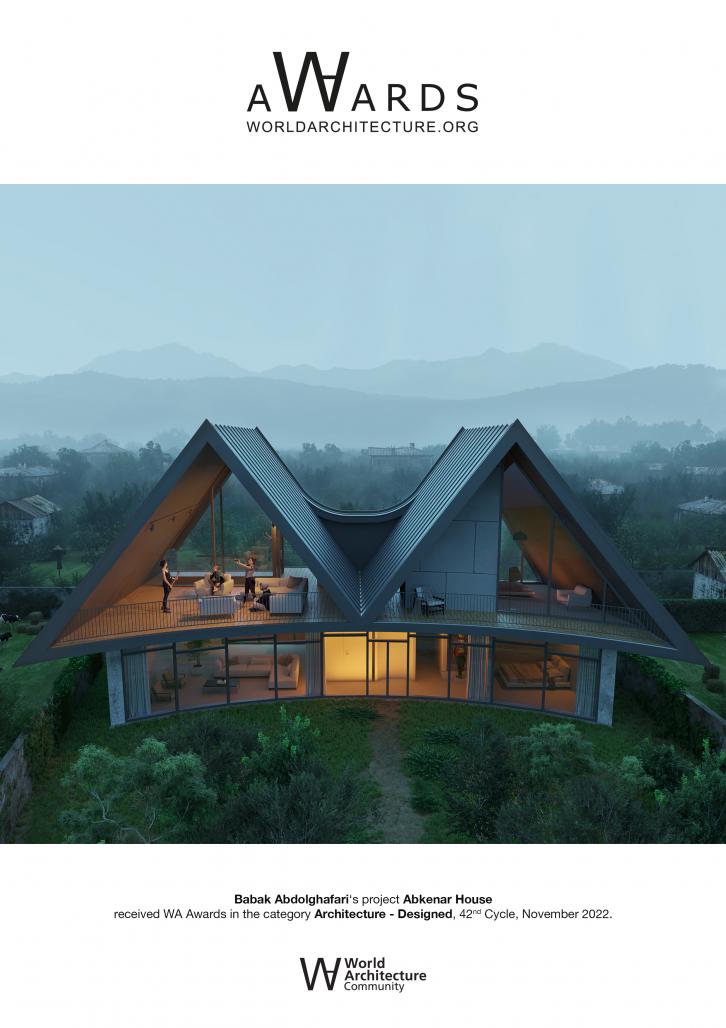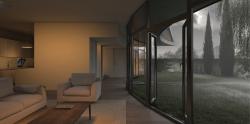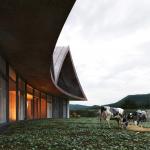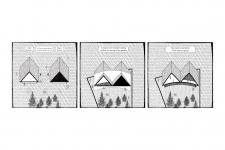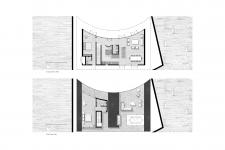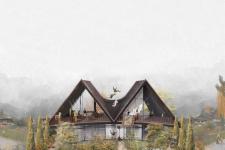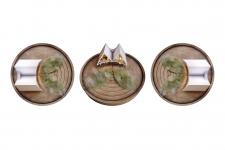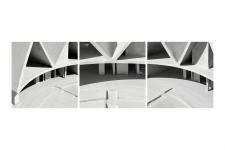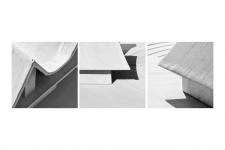In the green plains of Guilan, the flow of humid Mediterranean air surrounded by the Alborz mountains, on the one hand, and the evaporation cycle of the Caspian Sea, on the other hand, make repelling humidity and runoff water the primary environmental challenge.
As a result, there exists a style of vernacular architecture representing the natives’ response to nature.
The corresponding conventional component is primarily a pitched roof before a deck and a porch, all envisioning the abstract image of a house in the northern (region) of Iran.
Among all these, the pitched roof, which is the pivotal narrator of the project context and the symbol of vernacular buildings of this region, is of great interest.
The design process of the project is built on finding the best response to these two questions:
1- Who is the client?
2- What does the client desire?
Dual Requirements
The client is a retired couple together with their only young son whose conflicting demands and concerns, due to the gaps between the two generations, divided the physical program into two parts; Our client desired two opposing mindsets- from the parent’s point of view, this is a house for rest and peace of mind, while according to the son, the building is a villa or party house;
Therefore, our main challenge was to include two opposite programs as having two distinctive houses in a single and homogeneous mass.
The physical translation of the two purposes is two houses in their downright primitive form; like a house in a kid’s drawing, with a triangular roof at the top and a square shape at the bottom.
On the ground floor of the building, these two houses have been interwoven in such a way that we see nothing but a single, uniform mass.
However, on the upper floor, the two spatial requirements were contradictory, leading us to the idea of mass and void; that is, one enclosed mass (the father's room) and the other open void (the open-roofed porch desired by the son). This way, the project's dual purpose has been fulfilled while ensuring that the two are inaccessible to one another.
So the two identical, extended triangles that these spaces are underneath resembled two houses leaning on each other.
Garden First
From the beginning, the family made it clear how important it is to them for the garden to interact with the building.
Therefore, what seems to be a hidden notion but is essential, is the garden. In other words, in pursuit of the imagination of this family, the whole project is a dialogue between two attractions: the garden and the building, with the garden being an even stronger attraction.
Due to this particular attention paid to the garden by the client, the house, by embracing the garden, welcomes the overcoming priority of it. As a soft paste in the face of the garden's strength, the house has taken on a concave and defeated shape. The impressive achievement in this discourse seems to be that the surrender of the house in front of the dominant force of the garden has also resolved this challenge in favor of the building.
From the exterior perspective, the concavity is the point of attraction for the audience, while the inside panoramic view centers the spaces around the garden;
The garden, which its owners consider to be a piece of paradise!
2021
Location: Iran, Guilan, Anzali
Client: Mr. Jahan Pahlevani
Plot area: 1050 sqm
Built area: 188 sqm
Status: Concept
Design Team:
Natalie Ishoonejadian, Mojgan Moradi
Interior: Mona Afrazi
CG Artist/Interior: Forooq Seyyedi
CG Artist/Exterior: Mohsen Hamzelouie
Illustration assistant: Rashin Hosseini
Structure: Reza Sheikhi
Abkenar House by Babak Abdolghafari in Iran won the WA Award Cycle 42. Please find below the WA Award poster for this project.
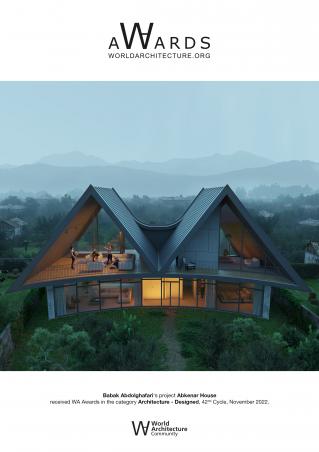
Downloaded 0 times.
